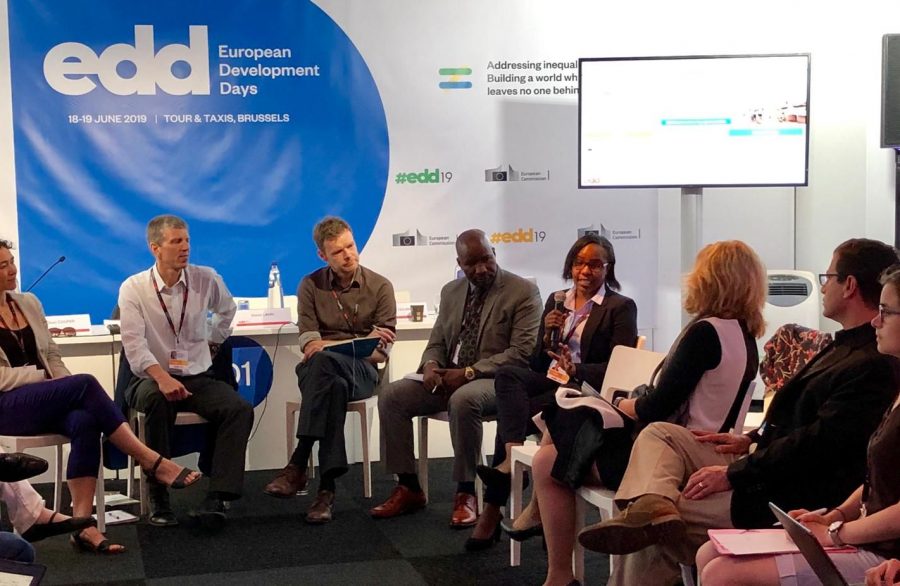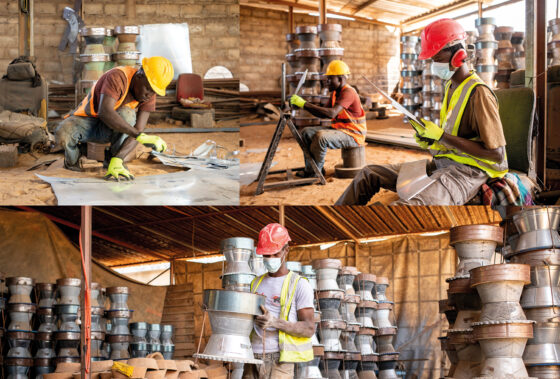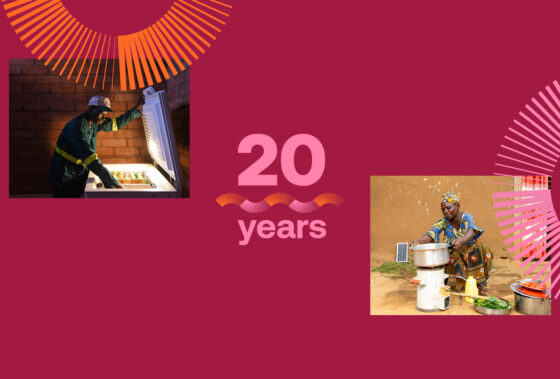EnDev partners demand more attention for energy needs in refugee settings

During a panel discussion at the European Development Days in Brussels, EnDev partners have criticised the lack of energy services in refugee camps.
“UNHCR is not providing sufficient energy”, said Sixtus Odumbe, advisor of SNV Netherlands Development Organisation, with respect to firewood supply in “Kakuma Refugee Camp” in northern Kenya where he works. In the camp, which hosts about 160,000 refugees, each person receives ten kilos of firewood every two months, according to Odumbe. “However, this amount is usually used up after one month”, he said.
The panel addressed the topic of “Energy for refugees and host communities” and was organised by the EnDev and its implementing partners GIZ, SNV, Practical Action and Hivos. In the discussion, Odumbe exchanged experiences with three other panellists: Tracy Tunge works on the Renewable Energy for Refugees project in Jordan and Rwanda for the British NGO Practical Action, Glada Lahn studies energy and environment as Senior Research Fellow at the British think tank Chatham House and Thomas Fohgrub is energy specialist at the United Nations Institute for Training and Research UNITAR, where he coordinates the Global Plan of Action for Sustainable Energy Solutions in Situations of Displacement.
Fohgrub said “Energy is not seen as a priority in humanitarian actions. Food, water and shelter come first, that is clear. However, energy is needed for all of that and we therefore need to mainstream sustainable energy solutions in humanitarian operations.” According to Fohgrub, 90 percent of the refugees living in camps have no electricity access, as the camps are often located in remote areas without connection to the grid.
While emphasising refugees’ needs for energy services, Fohgrub and Odumbe also cautioned against spending too much money on unsustainable energy sources. Fohgrub said: “An estimated 400 million US-Dollars are spent on diesel every year by humanitarian organisations to generate electricity. We could use that money more efficiently.” And Odumbe explained: “UNHCR puts 800,000 dollars per year into firewood in Kakuma Refugee Camp. But the collection of firewood destroys the nature around the camp, which is now almost a dessert.”
The researcher Glada Lahn has been observing the energy situation in refugee settings since 2015. She said: “As conflict driven migration often tends to be long-term, temporary solutions don’t work. Now we need a more holistic approach in refugee contexts, in which energy is integrated with other sustainable development goals.” To use the existing financial resources more efficiently, the panellists suggested to focus on renewable energies and to introduce markets for energy services in refugee camps. Sixtus Odumbe said: “About 30 percent of the refugees in Kakuma Refugee Camp are able to pay for energy services.” He predicts: “If we can invest more in electricity for productive use, we can foster long-term development in the camps.”

